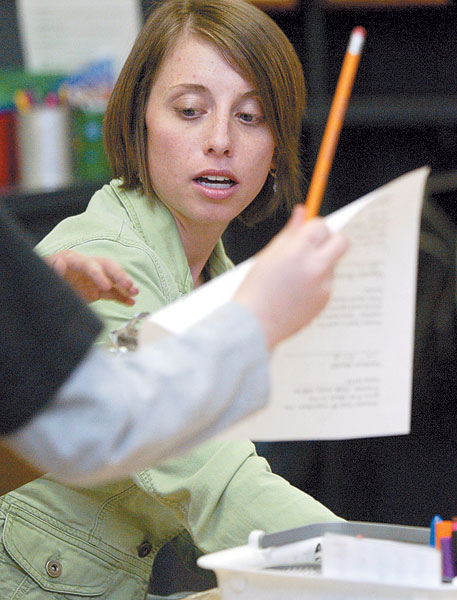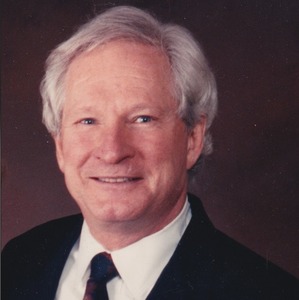TAPing into leadership

ALL |
EAGLE COUNTY – Press your ears against the belly of Eagle County schools, and you’ll hear a low, growling rumble.It’s the sound of indigestion, of teachers still dealing with the tough changes of TAP, the Teacher Advancement Program.Since its conception, some teachers have been skeptical, even hostile toward the idea of frequent evaluations and tying their performance to pay. Other teachers love it, enjoy being paid more and believe it gives struggling teachers something to strive toward.Now though, after nearly five years of being in our schools, TAP is showing true signs of success- students in Eagle County are dramatically outperforming schools without TAP, administrators say. If that’s the case, why aren’t all teachers singing its praises?Well, it might depend on where they’re teaching. Leadership at individual schools, ranging from inspiring to horrible, seems to be making a big difference in how teachers view TAP, said Todd Huck, a sixth grade science teacher and president of the teacher’s association.The schools with great leaders are making TAP work, and the teachers will gladly tell you – while in other schools, ones where the teachers don’t respect the people coaching and evaluating them, TAP is falling apart, he said.”There are definitely prospects of this program being implemented successfully- they just need to hire people who can handle them in an effective way,” Huck said. “You want your boss to be someone who inspires you, but I don’t think that’s happening at all schools.”The stress
You could say TAP is a little like Big Brother for teachers- there’s always someone watching you.Tara Picklo, a first grade mentor teacher at Brush Creek Elementary, said it can be pretty intense around evaluation time, when even the most confident teachers become stressed and a little paranoid. After all, pay is largely based on how teachers perform on these evaluations.”You’re constantly watching and waiting for someone to pop in,” Picklo said. ” “You’ll always say, ‘Oh, I wish they would have evaluated me today,’ or ‘Man, I’m glad they weren’t here today.'”That someone watches how you ask questions, how you connect with kids, how you challenge the bright students and inspire the struggling ones. This daily scrutiny is how teachers are held accountable in TAP – so, a certain level of stress can be expected, said Traci Wodlinger, TAP coordinator for the school district.”It’s a stressful thing, even when you’re competent and comfortable with what you do,” Wodlinger said. “But, this gives us a good look at how teachers are doing. The level of accountability is changing, and the days of closing your classroom door are gone.” But the day to day experience can either be either constructive or spirit crushing, depending on who the leaders are, Picklo said. In her career, it’s usally been very helpful.”I’ve been at two different schools, and TAP was effective at one and not the other,” Picklo said. “Those evaluations are a necessary evil, they have made me a better teacher. But it doesn’t appear to be like that at all schools.”A matter of tactTeachers are quick to point out they don’t mind being evaluated- it’s just a matter of tact.Huck said it’s hard to explain to a teacher they need help in a certain area, and some master and mentor teachers- the ones responsible for coaching and evaluations- don’t have the people skills for that. Often, they can make it worse, he said.
“I’m going to be blunt- there are mentor and master teachers who have no business being mentor and master teachers, and that’s the big problem with TAP,” Huck said. “Even Tiger Woods has a coach, you know, so it’s never bad to have someone evaluate you, but it has to be someone you respect and someone who respects you back.”The solution? Where needed, hire better mentors, masters and principals, Huck said.Superintendent John Brendza said he’s heard these complaints and agrees that it’s effecting how schools perform.”Our building level principals and mentor and master teachers are paramount to our success, and we have to better evaluate those roles,” Brendza said. “We have to make sure we’re providing support and training for those mentor and master teachers. When we’re going through our selection process choosing these leaders, we need to make sure we’re evaluating candidates who can be successful.Closed doors no moreWhen the teachers find a groove with their masters and mentors, good things can happen with TAP, Huck said.One of the most popular aspects of the program has always been the large amount of time teachers spend brainstorming and planning with mentor and master teachers. With TAP, that collaboration time is on the clock, whereas teachers used to meet after school, if at all, Wodlinger said.”If the group time is spend in a valuable way, then teachers love it,” Wodlinger said. “It can really help their professional growth.”Battle Mountain High School Principal Brian Hester said he’s inspired by the team work he’s seen at his school.”The old way was you taught your subject, closed your door, and that’s it,” Hester said. “Now, teachers are looking at research based strategies, field testing them, sharing them amongst other teachers and adjusting where they don’t work- that part of it is great.”
Picklo, who started her career four years ago in TAP and has never known anything else, said she’s learned a lot of things from other teachers that have helped her in the classroom.”I don’t know how schools can function without it, really,” Picklo said, referring to the group planning time.Off the recordSo, where are those troubled schools we heard so much about?The Vail Daily has classically had a tough time finding teachers willing to talk on the record about TAP. While teachers this time around were very candid, some still draw a line at pointing fingers. Eight teachers contacted by the Vail Daily declined to comment or spoke off the record for this story.It’s not so much about fear of losing their job, as teachers have told us before. It’s more about respecting colleagues and choosing other places, like Board of Education meetings, to solve problems.Still, on the record or not, many teachers say their biggest frustrations with TAP come more from how the program is implemented. The program at its heart, many say, is a very good thing.========================================Not the sameThere will always be teachers opposed to performance based pay – even teachers making more money than they used to, said Traci Wodlinger, TAP coordinator for the school district.
“Some teachers have this socialistic mentality, that we’re all the same, that we’re all in this together,” Wodlinger said.In TAP though, not all the teachers are the same, nor should they be, Wodlinger said.”Think back to all the teachers you had and how some of them didn’t help – did you realize that those bad teachers were getting the same kind of raise as the good ones?” Wodlinger said. “Those bad teachers who are showing no growth- we hope they’re leaving, we don’t want the bad teachers,” Wodlinger said.One criticism of pay for performance is the tie to standardized tests. Some teachers say they can do amazing things in a classroom but can’t control how a student does on a one shot test like the CSAP.Also, some teachers don’t like the uncertainty in TAP. They used to be paid based on how long they’ve been teaching and how many college hours they have. Now, there are lot more variables.==================================TAP basicsThe teacher advancement program, also known as TAP, pays teachers according to how well they perform on formal evaluations and how well their students do on standardized tests. One of the main ways TAP aims to improve teacher performance is through a mentoring system.-Master teachers spend 70 percent of their time coaching and training other teachers and 30 percent of their time in the classroom. They evaluate other teachers, oversee planning groups and test new teaching methods.- Mentor teachers spend 30 percent of their day mentoring and evaluating other teachers and leading planning groups and 70 percent of their time teaching.-Career teachers spend their entire day in the classroom teaching.

Support Local Journalism
There is typically one master teacher for every 14 to 16 teachers and one mentor teacher for every four to six teachers.Staff writer Matt Terrell can be reached at 748-2955 or mterrell@vaildaily.com.










